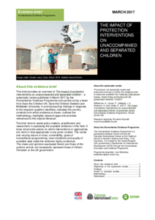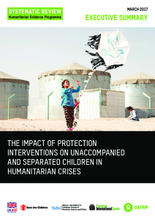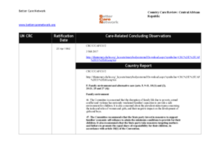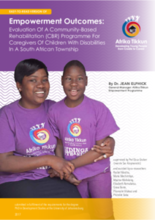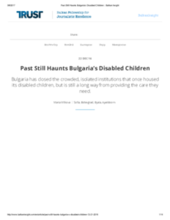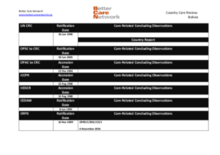Displaying 291 - 300 of 494
This Evidence Brief provides an overview of the systematic review.
This Executive Summary provides an overview of the systematic review.
This country care review includes the care-related Concluding Observations adopted by the Committee on the Rights of the Child.
The Committee's recommendations on the issues relevant to children's care are highlighted, as well as other care-related concluding observations, ratification dates, and links to the Universal Periodic Review and Hague Intercountry Adoption Country Profile.
The Committee's recommendations on the issues relevant to children's care are highlighted, as well as other care-related concluding observations, ratification dates, and links to the Universal Periodic Review and Hague Intercountry Adoption Country Profile.
Three semi-structured focus group interviews were conducted with twelve schoolchildren, aged 13–15 years for the purpose of exploring the knowledge and attitudes towards disability of young people within Moldova.
This report presents the results of an evaluation of Afrika Tikkun's Empowerment Programme.
Using two sources of household survey data, this paper examines school enrolment and attendance patterns for children with disabilities in Kenya.
This article discusses Bulgaria's challenges since the shut down of its crowded institutions, which housed disabled children.
This country care review includes the care-related Concluding Observations adopted by the Committee on the Rights of Persons with Disabilities during the sixteenth session (15 Aug 2016 – 2 Sep 2016) of the Convention on the Rights of Persons with Disabilities.

